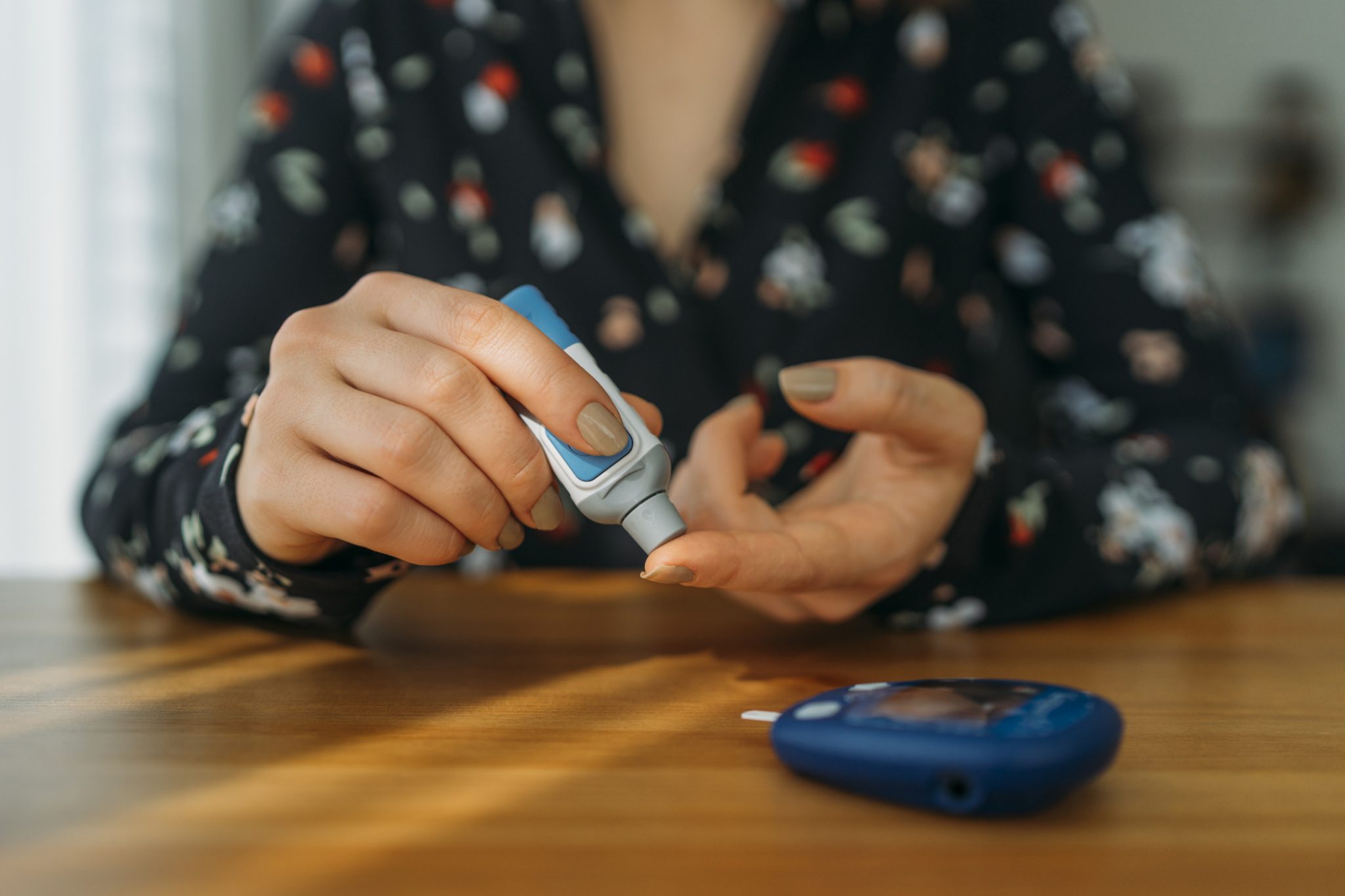How to Tell if You Have Diabetes

April 28, 2022
According to the Centers for Disease Control and Prevention, one in 10 Americans—34 million people—have diabetes, but one in five doesn’t even know it.
“The symptoms for Type 1 and Type 2 diabetes are very similar and sometimes subtle,” says Cristina Ciorlian, M.D., FACE, endocrinologist at Jersey Shore University Medical Center. “So if you are uncertain, it’s best that you seek the assistance of a medical professional as soon as possible.”
Diabetes is a serious condition, and if left untreated, symptoms can worsen and sometimes result in death or other serious health issues.
Know the Signs and Symptoms
Type 1 diabetes symptoms can develop quickly, within weeks or months. Type 2 diabetes usually develops more gradually, over several months or years. “But most symptoms of both types are similar,” Dr. Ciorlian says. “The earlier the condition is diagnosed, the sooner treatment can begin.”
If you experience any of these symptoms, talk to your health care provider as soon as possible:
- Blurred vision. When your body retains fluid, it can cause the lenses of your eyes to swell––resulting in difficulty focusing and seeing clearly.
- Frequent urination. When your body is not capable of processing glucose due to diabetes, your kidneys begin working overtime to filter and absorb the glucose. When your kidneys are unable to do this, your body begins to draw moisture from other sources in attempts to remove the excess through urination.
- Extreme thirst. When your body is absorbing fluids to process glucose, you will feel the need to hydrate more frequently to satisfy your thirst.
- Tingling or numb hands and feet. Too much glucose will affect the function and responsiveness of your nervous system.
- Slow healing wounds. When your body is having difficulty processing glucose, poor blood flow and dysfunction of the immune system, will inhibit your body’s natural healing process.
- Extreme fatigue. When your body can't process glucose properly, it is unable to use it for energy.
- Constant hunger. When the glucose in foods consumed is not adequately converted to energy due to insufficient insulin levels, your body will have difficulty maintaining energy.
Determine Your Risk
Risk factors for diabetes depend on the type of diabetes.
For example:
Some risk factors for Type 1 include:
- Family history
- Presence of diabetes autoantibodies
- Environmental factors such as exposure to a viral illness
Risk factors for Type 2 include:
- Heavier weight
- Inactivity
- Family history
- Older age
- Previous gestational diabetes
- High blood pressure
- High triglycerides and drinking alcohol (can cause acute and chronic pancreatitis)
Next Steps & Resources:
- Meet our source: Cristina Ciorlian, M.D., FACE.
- To make an appointment with a doctor near you, call 800-822-8905 or visit our website.
The material provided through HealthU is intended to be used as general information only and should not replace the advice of your physician. Always consult your physician for individual care.
Find a doctor near me
Newly Diagnosed with Diabetes? Top Five Ways to Manage It

About 1.5 million adults in the United States are newly diagnosed with the disease each year, adding to the estimated 30 million Americans living with the condition, according to the Centers for Disease Control and Prevention.
Preventing Blood Sugar from Dropping at Night

Hypoglycemia occurs when blood glucose levels drop below normal - typically 70 milligrams per deciliter.
Find a doctor near me

Can You Get Diabetes from Eating Too Much Sugar?
Learn about diabetes from Dr. Dixit. Understand its causes and how to lower your risk at Pascack Valley Medical Center. Call 800-822-8905.

Back on Track With Diabetes
Manage diabetes effectively. Pascack Valley Medical Center offers expert diabetes care and support. Learn from Stacey's experience and improve your health.

Foot Care for Diabetics
Did you know that proper foot care can help prevent complications from diabetes down the road?

American Girl Doll Kit Brings Diabetes Care to Life
American Girl dolls help kids cope with diabetes. Dr. Beckwith-Fickas provides support and resources. Learn how this program helps children.
